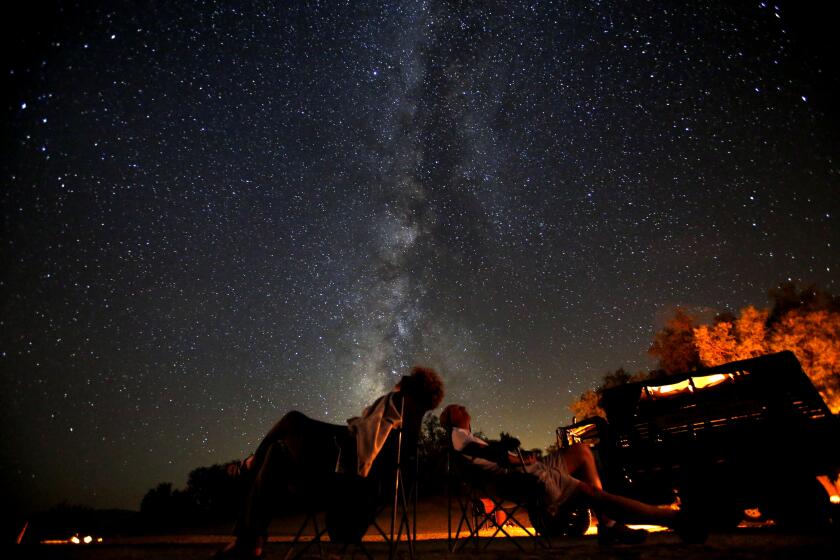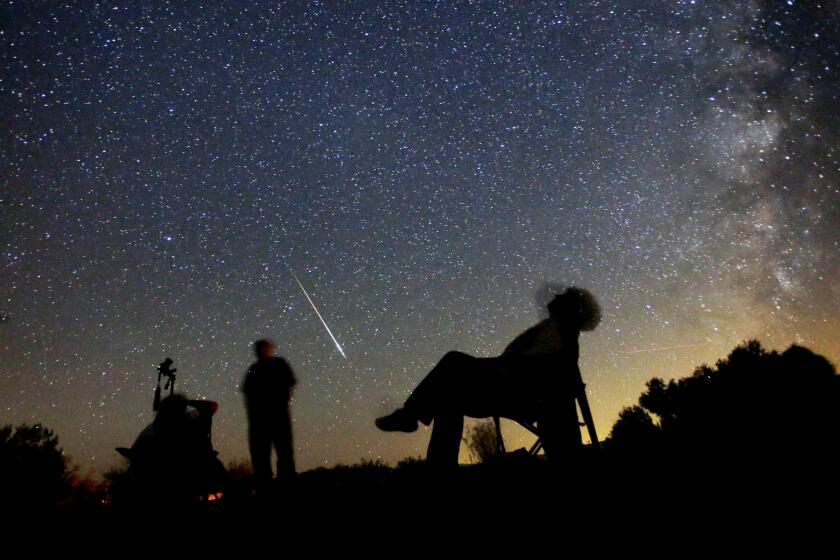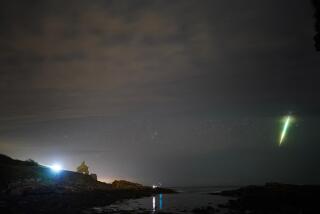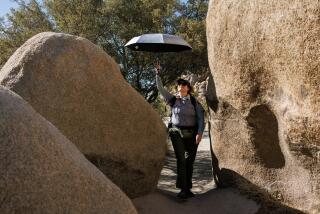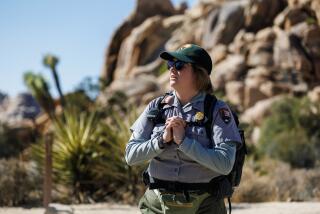Going to Joshua Tree to watch the Perseid meteor shower? Get ready to see a crowd
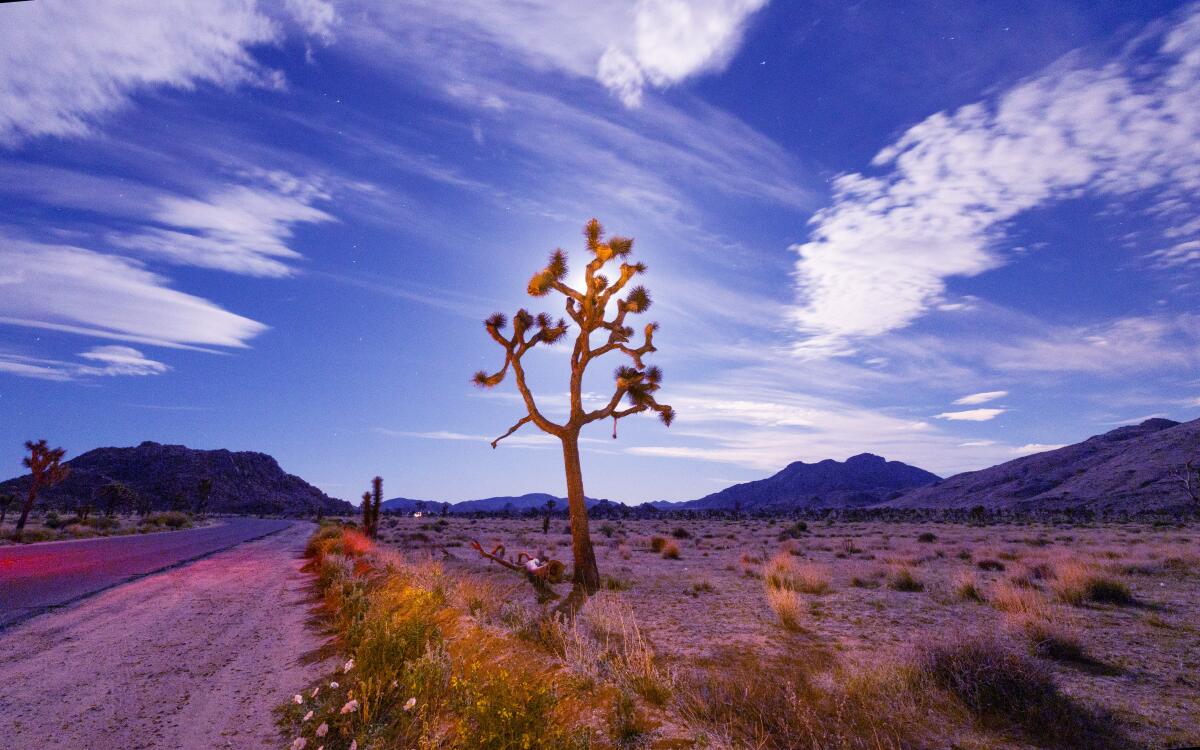
Joshua Tree National Park, a frequent refuge for stargazers fleeing the bright lights of California cities, is preparing for a surge in visitors during the Perseid meteor shower this month.
The Perseid meteor shower is visible each year in August when Earth ventures through trails of debris left behind by the ancient comet Swift-Tuttle. Spectators frequently flock to national parks such as Joshua Tree and other outdoor spaces to catch a glimpse of the celestial phenomenon.
And this year is no exception. Park officials are anticipating heavy traffic heading into Joshua Tree on Aug. 10 and 11.
“Due to the park’s proximity to major cities, traffic can be heavy and can cause delays of up to several hours,” officials wrote in a news release this week.
Two meteor showers visible from the Northern Hemisphere, the Southern delta Aquariids and the alpha Capricornids, will peak between Monday and Wednesday.
During the Perseid meteor shower last year, thousands of visitors arrived at Joshua Tree on the same night with cars lined up for miles on Highway 62. The aurora borealis sighting in March created similar heavy traffic, according to park officials.
“We were expecting some crowds, but we were not anticipating the amount that decided to come to the area” in 2023, said park spokesperson Meg Rockwell.
The park will have additional staff on site during the meteor shower, she said.
Mother Nature put on a particularly spectacular show last year when the peak of the Perseid meteor shower fell on a Saturday with a new moon. The peak is expected to land this month on a Monday night with a first quarter moon, meaning the showers might not be quite as visible.
The annual Perseid meteor shower requires us to leave behind our light-polluted cities for darker night skies that allow us to see the full luminosity of the celestial attraction.
Officials suggest visitors intent on experiencing the meteor shower at the national park buy entrance passes in advance, which can minimize delays. Spectators should also consider downloading the park’s app to use offline while visiting as cell service can be spotty, officials said.
Joshua Tree National Park is one of five locations in California that’s a certified dark night sky area through DarkSky International, a nonprofit that aims to protect communities and wildlife from light pollution.
Julian, Borrego Springs, Anza-Borrego Desert State Park and Death Valley National Park are also on the organization’s list of approved dark night sky areas.
“There’s only so much space in our not-so-little park,” Rockwell said.
More to Read
Sign up for Essential California
The most important California stories and recommendations in your inbox every morning.
You may occasionally receive promotional content from the Los Angeles Times.
